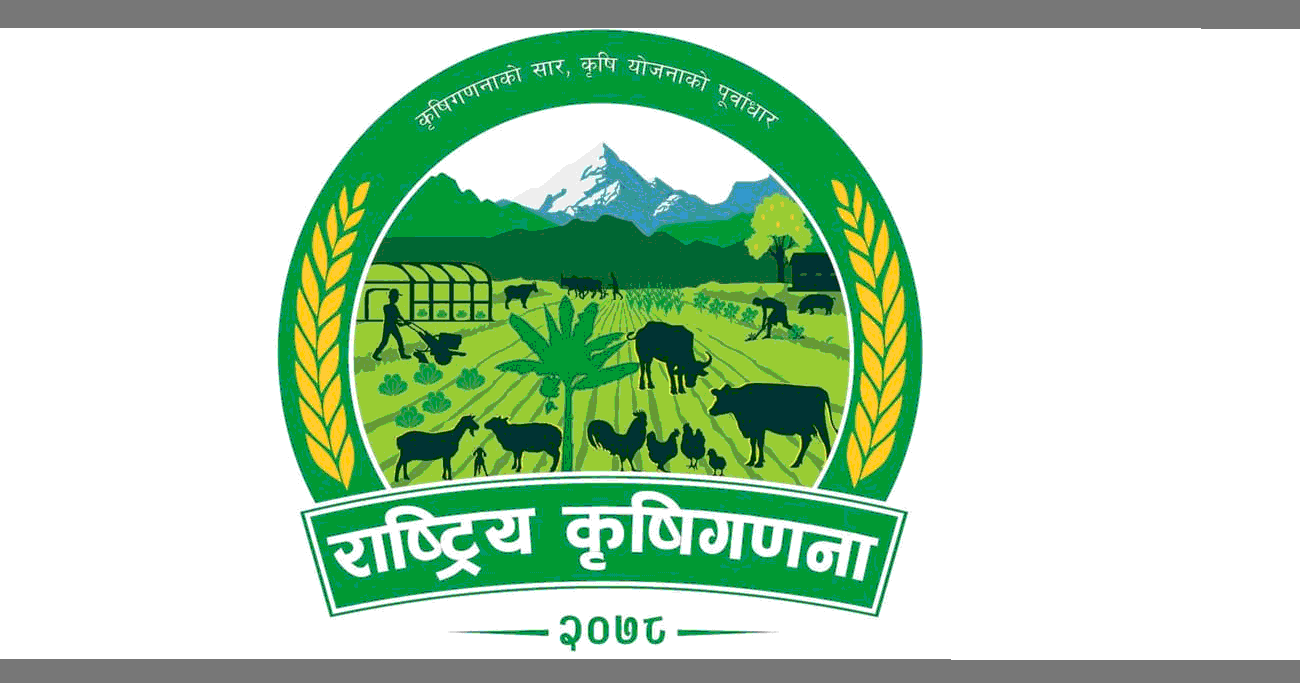
The Central Bureau of Statistics (CBS) is launching the seventh national agricultural census starting on Tuesday (19th April 2022) with the slogan 'Essence of Agricultural Census, Infrastructure of Agricultural Planning'. According to the department, the census will be conducted in three lakh households in 77 districts from April 19 to June (Baishakh 6 to Jestha 19, 2079).
According to Deputy Director-General of the Department, Hemraj Regmi, during the census of 2078 BS, two questions were asked whether 6.8 million households have cultivable land and whether livestock is reared or not. Out of them, 4.1 million households had replied that they had cultivable land and also raised livestock. Out of the 4.1 million, agriculture is being counted with three lakh households by sampling, said Deputy Director General Regmi.
He informed that five thousand two hundred enumerators and one thousand three thousand supervisors have been deployed for the agricultural census. He said that they have reached their respective areas of work. The agricultural census conducted every 10 years was done earlier in 2068 BS. The agricultural census in all the districts was conducted in two phases.
At that time, it was concluded that 38 lakh 31 thousand 93 farming households and those families had an area of ââ25 lakh 25 thousand 639.2 hectares of cultivable land. Mentioned self-reliance.
42 percent farmers have not been able to get agricultural loan. V.S. Since 2018, the Central Statistics Department has been conducting national agricultural census every 10 years. The department has stated that detailed details related to agricultural activities will be collected through personal interviews with the selected farming families at 753 local level by scientific method.
Under this census, details of family, commercial and institutional farming activities will be collected. The department has stated that data will be collected on the area of ââland planted with spices, vegetables and fruits and production of major crops.
Similarly, seeds, pesticides, use of fertilizers, age group, number of livestock according to caste, condition of buildings and structures used in agriculture, agricultural implements, fisheries, beekeeping, dill farming, floriculture, silk farming, agricultural loans, agricultural insurance, agricultural subsidies, agricultural environment. Impact data will also be collected. The department has stated that details will be collected about the adequacy of food and other economic activities of the family, agricultural workers, land in the name of women and others.
According to the department, the census will also collect data on commercial agriculture carried out by households and community-based agriculture in addition to government, semi-government, cooperative and institutional operations. The department has stated that the seventh agricultural census is based on scientific selection method.
The department expects that the basic data required by the country for formulation, implementation, monitoring and evaluation of the policy and plan of the agricultural sector will be obtained from the agricultural census. The department has stated that the supervisors assigned in the agricultural census should coordinate with the concerned municipality, village mayor, chairperson, ward chairperson and ward members.
Representatives should be requested to assist in the calculation. The department has instructed the supervisor to coordinate and discuss with the representative as it would be easier for the farmer to assist and conduct the interview if requested by the officials of the concerned municipality from the experience of past agricultural census.
It is said that the Chief District Agriculture Census Officer will be responsible for discussing the census with the people's representatives and administrative officials in the district. The enumerators concerned should also assist the supervisor who is responsible for studying the questionnaires brought back by the enumerators after completing their work and delivering the correct forms to the District Agricultural Census Office.





